Seeds of Change in Ethiopia
Nicolo Di Marzo – Link Education
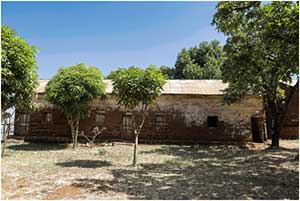 Taking private action for public good to support government and non-governmental (NGOs) work is exactly what the community around Tomtome Primary School is doing by growing a lush cornfield surrounding the school’s premises. Proceeds from the sale of the corn go directly into the school funds. This practice is common in Wolaita Zone, South Ethiopia Region where community participation incentives often provide from a minimum of 30% to a maximum of 50% of a school’s annual income, as we had the opportunity to assess during a routine visit in October 2023.
Taking private action for public good to support government and non-governmental (NGOs) work is exactly what the community around Tomtome Primary School is doing by growing a lush cornfield surrounding the school’s premises. Proceeds from the sale of the corn go directly into the school funds. This practice is common in Wolaita Zone, South Ethiopia Region where community participation incentives often provide from a minimum of 30% to a maximum of 50% of a school’s annual income, as we had the opportunity to assess during a routine visit in October 2023.
For instance, Bede Ahmos Primary School, with a school enrollment of 798 students, received a World Bank school grant of 41,000 Ethiopian Birr ($ 722) in 2023, while the community nearby the school has contributed around 15,000 Ethiopian Birr ($ 264) in cash and kind materials.
Efforts to contribute to a greener, cleaner, and more self-reliant Ethiopia is precisely what the Green Legacy (n.d.) campaign has been trying to achieve nationwide since 2019. Green Legacy is raising public awareness of Ethiopia’s environmental degradation and encouraging planting ecofriendly seedlings in both urban and rural settings. While many schools, such as Bede Ahmos and Tomtome, have made commendable efforts to initiate green income-generating activities, much land held by primary and secondary schools remains underutilized, often barren or overgrown with valueless vegetation, both economically and aesthetically.
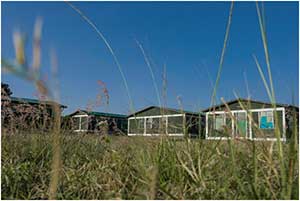 This is why Link Education is committed to help communities transform school land into flourishing gardens, rich with trees, plants, and vegetables that can be harnessed to generate school income, to adopt sustainable and environmentally friendly practices, and to fortify the school’s resilience to climate change events, such as drought and floods. Building on more than a decade’s work in girls’ education, mostly through funding from the United Kingdom Foreign Commonwealth Development Office (UK FCDO) Girls’ Education Challenge, Link has to date supported the transition of 61,345 girls from primary to secondary school in 146 primary and secondary schools of Wolaita Zone. We remain committed to:
This is why Link Education is committed to help communities transform school land into flourishing gardens, rich with trees, plants, and vegetables that can be harnessed to generate school income, to adopt sustainable and environmentally friendly practices, and to fortify the school’s resilience to climate change events, such as drought and floods. Building on more than a decade’s work in girls’ education, mostly through funding from the United Kingdom Foreign Commonwealth Development Office (UK FCDO) Girls’ Education Challenge, Link has to date supported the transition of 61,345 girls from primary to secondary school in 146 primary and secondary schools of Wolaita Zone. We remain committed to:
- transform school compounds into learning centers for plant cultivation and fostering environmental responsibility;
- build on the successes of our Science Technology Engineering Maths (STEM) Induction Project that encourage particularly girls to take up STEM subjects and careers through a Social-Emotional Learning (SEL) approach, intended to build girls’ confidence through group work and classroom presentation. STEM is presented in an innovative, creative and relevant fashion, showing students how STEM skills and knowledge can help solve many problems faced by the communities they live in;
- educate students and teachers on climate change, turning them into advocates equipped to inspire other schools in their vicinity to follow the same path;
- equip students and teachers with income generation and sustainable business skills aligned with a circular economy;
- develop “green” school improvement plans (SIPs) for resource acquisition through various means, including grants and community contributions; and
- aesthetical enhancement of schools and surroundings to inspire students to value and care for the environment.
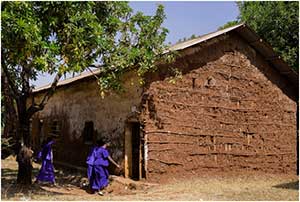 We passionately believe that the seeds we have planted so far in South Ethiopia contribute to a strong education system supporting quality learning, relevant life-skills and embeds equality which will play a significant role in combating climate challenges and associated emergencies (Link Education). We look forward to seeing its fruits when harvest approaches.
We passionately believe that the seeds we have planted so far in South Ethiopia contribute to a strong education system supporting quality learning, relevant life-skills and embeds equality which will play a significant role in combating climate challenges and associated emergencies (Link Education). We look forward to seeing its fruits when harvest approaches.
Seeds of Change in Ethiopia
Nicolo Di Marzo – Link Education

Taking private action for public good to support government and non-governmental (NGOs) work is exactly what the community around Tomtome Primary School is doing by growing a lush cornfield surrounding the school’s premises. Proceeds from the sale of the corn go directly into the school funds. This practice is common in Wolaita Zone, South Ethiopia Region where community participation incentives often provide from a minimum of 30% to a maximum of 50% of a school’s annual income, as we had the opportunity to assess during a routine visit in October 2023.
For instance, Bede Ahmos Primary School, with a school enrollment of 798 students, received a World Bank school grant of 41,000 Ethiopian Birr ($ 722) in 2023, while the community nearby the school has contributed around 15,000 Ethiopian Birr ($ 264) in cash and kind materials.
Efforts to contribute to a greener, cleaner, and more self-reliant Ethiopia is precisely what the Green Legacy (n.d.) campaign has been trying to achieve nationwide since 2019. Green Legacy is raising public awareness of Ethiopia’s environmental degradation and encouraging planting ecofriendly seedlings in both urban and rural settings. While many schools, such as Bede Ahmos and Tomtome, have made commendable efforts to initiate green income-generating activities, much land held by primary and secondary schools remains underutilized, often barren or overgrown with valueless vegetation, both economically and aesthetically.

This is why Link Education is committed to help communities transform school land into flourishing gardens, rich with trees, plants, and vegetables that can be harnessed to generate school income, to adopt sustainable and environmentally friendly practices, and to fortify the school’s resilience to climate change events, such as drought and floods. Building on more than a decade’s work in girls’ education, mostly through funding from the United Kingdom Foreign Commonwealth Development Office (UK FCDO) Girls’ Education Challenge, Link has to date supported the transition of 61,345 girls from primary to secondary school in 146 primary and secondary schools of Wolaita Zone. We remain committed to:
- transform school compounds into learning centers for plant cultivation and fostering environmental responsibility;
- build on the successes of our Science Technology Engineering Maths (STEM) Induction Project that encourage particularly girls to take up STEM subjects and careers through a Social-Emotional Learning (SEL) approach, intended to build girls’ confidence through group work and classroom presentation. STEM is presented in an innovative, creative and relevant fashion, showing students how STEM skills and knowledge can help solve many problems faced by the communities they live in;
- educate students and teachers on climate change, turning them into advocates equipped to inspire other schools in their vicinity to follow the same path;
- equip students and teachers with income generation and sustainable business skills aligned with a circular economy;
- develop “green” school improvement plans (SIPs) for resource acquisition through various means, including grants and community contributions; and
- aesthetical enhancement of schools and surroundings to inspire students to value and care for the environment.

We passionately believe that the seeds we have planted so far in South Ethiopia contribute to a strong education system supporting quality learning, relevant life-skills and embeds equality which will play a significant role in combating climate challenges and associated emergencies (Link Education). We look forward to seeing its fruits when harvest approaches.
Share
LATEST RESOURCES
Engaging Digital Natives Through Literacy, Outdoor Learning, and Technology
Engaging Digital Natives Through Literacy, Outdoor Learning, and Technology
Erik […]
Pages to Puddles: Story Walks as a Creative Tool for Assessing Stormwater Knowledge
Pages to Puddles: Story Walks as a Creative Tool for […]
Teaching and Learning about Obligate Species in Vernal Pools
Teaching and Learning about Obligate Species in Vernal Pools
Suzanne E. […]

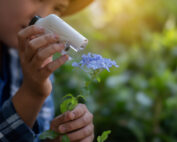

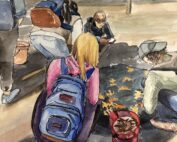
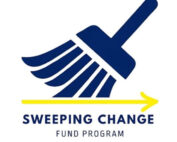
![A logo for The Sweeping [...]
</p srcset=](https://blueswallowfarmfoundation.org/wp-content/uploads/2025/03/sweeping-change-fund-1024x538.jpg)

